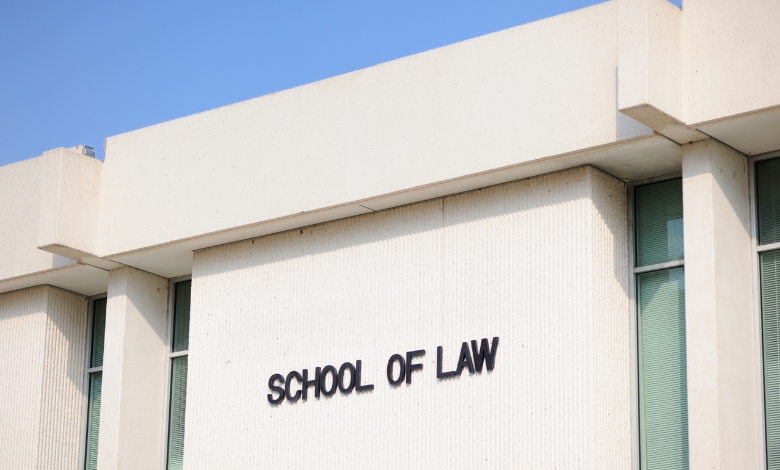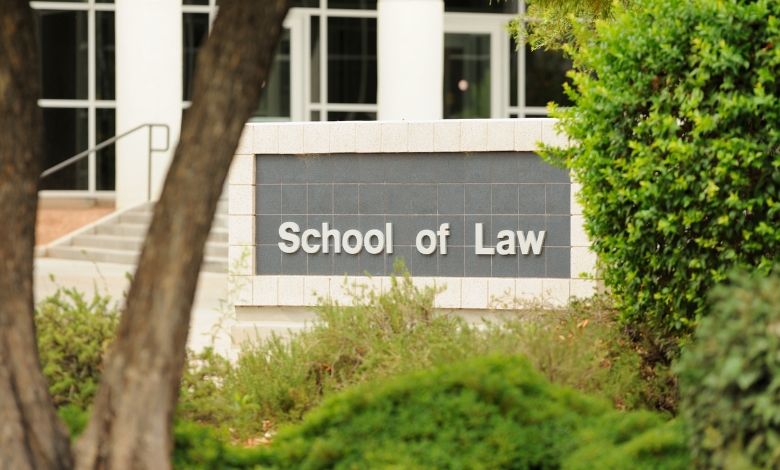Bianca Hughley Southwest Airlines lawsuit brings forward claims of disability, race and wrongful termination against the carrier.
The Bianca Hughley Southwest Airlines lawsuit is a federal case where Hughley, a former flight attendant, claims she was wrongfully terminated and discriminated against due to race and disability, creating a larger conversation about how airlines treat their employees.
I’ll be honest… when I first stumbled upon the story of Bianca Hughley’s lawsuit against Southwest Airlines, I didn’t expect to get pulled in like this. You think it’s just another employee-versus-company situation, but the deeper you go, the more complicated it gets. There’s a real human under all that legal noise… someone who got sick, got caught in a spiral, and felt like her employer didn’t have her back.
Picture this: you’re working for a major airline, flying coast to coast, feeling proud when passengers hand you appreciation letters. Then, one day, a mix of illness, misunderstanding, and maybe bad timing sends everything crashing. That’s Bianca’s story… or at least how she says it happened. And as you go through what she’s filed and what the courts decided, it’s almost like you’re piecing together a jigsaw puzzle with a few missing pieces.
Article Breakdown
What the Bianca Hughley Lawsuit Is Really About
So, here’s what’s going on. Bianca Hughley filed a federal lawsuit against Southwest Airlines after she was terminated from her job as a flight attendant. She’s arguing that the airline wrongfully fired her… that it wasn’t just about “policy violations,” but discrimination because of her race and disability.
She says she was a good employee… six customer appreciation letters, no major performance issues. But things took a sharp turn. She got accused of wearing headphones in front of customers. Then came an altercation with another flight attendant. And eventually, the big one… she called in sick one day to handle something personal at a police station.
That day changed everything.
While she was at the police station, she got arrested. She says she was later treated in a hospital for a medical issue related to her disability and then detained at the Baltimore County Detention Center. Sounds unbelievable, right? But during that time, she couldn’t access her work computer or communicate properly with her supervisors.
And you know what Southwest did? They called a “fact-finding” meeting she couldn’t attend and then fired her.
The Reason Southwest Says They Fired Her
From the company’s side, it seems more procedural. They said she violated company policy by giving her work login credentials to another flight attendant who changed her schedule. They also said she “called in sick” twice while in jail and didn’t show up for the scheduled meeting.
In their eyes, that’s enough reason for termination. But if you look at it from Bianca’s perspective… she was in a tough place, physically and mentally. She wasn’t ghosting work for fun; she was literally behind bars, probably panicking.
That’s what makes this whole story so human. It’s not just a list of rules and consequences. It’s a messy intersection of health, circumstance, and bureaucracy colliding at full speed.
From the Courtroom’s View
Now, this is where it starts to feel like you’re reading two different stories about the same event. Bianca’s lawsuit included several claims: breach of contract, discrimination based on race and disability, hostile work environment, and violation of Maryland’s sick leave law.
But when the case went to court, most of her claims didn’t stick.
The court said her breach of contract claim was “preempted” by the Railway Labor Act… meaning, if you’re in the airline industry and you’re covered under a union agreement, you can’t just take your employer to court for something like that. You’ve got to go through arbitration instead.
It also said her discrimination claims lacked enough “factual detail.” In plain English: she didn’t provide enough concrete examples or evidence showing her treatment was because of her race or disability.
That’s frustrating, right? Because you can feel that she believes it deeply… but belief alone doesn’t hold up in legal language.
The court dismissed most of her claims. She appealed… and lost again.
Still, she’s not giving up. She’s filed another related case this year. You can tell she’s fighting for something she truly feels is unjust. Whether the law agrees or not, the persistence says a lot about her conviction.
The Human Part We Don’t Talk About
Let’s pause for a second. Imagine being in her shoes. You’re dealing with health issues, you suddenly get detained, and you can’t reach work. Then you lose your job.
How do you even begin to process that?
This isn’t about contracts anymore—it’s about trust and being believed. Because when companies talk about “team culture” and “support,” it often doesn’t hold up when life throws chaos into the mix.
Bianca’s story hits differently because it’s not black and white. Maybe she did break a policy. Maybe the airline was within its rights. But maybe, just maybe, there was room for compassion.
That’s what’s missing in most corporate responses… the human factor.
What This Case Is Actually Testing
This lawsuit, beyond Bianca and Southwest, is testing bigger things:
- How do major airlines handle employees who suddenly face medical or personal crises?
- Are airline workers truly protected when health or legal issues interrupt their jobs?
- And how does the law balance “company policy” with “human circumstances”?
You might think this is just one woman’s case, but the implications are broader. Airline workers operate in one of the most heavily regulated industries. One misstep, one miscommunication… and it can turn into a career-ending decision.
That’s why the Bianca Hughley case feels bigger than it looks on paper. It exposes how fragile “job security” can be when you’re part of a huge system that values compliance over empathy.
What the Court Focused On
When the judge reviewed her case, they focused on a few key things:
- Race & Disability Discrimination: The court said her claims didn’t provide enough specifics. It’s not enough to say you were treated unfairly… you need to show a clear pattern tied to your race or disability.
- Breach of Contract: Because of the Railway Labor Act, this had to go through arbitration, not federal court.
- Hostile Work Environment: The court didn’t see “severe or pervasive conduct” based on her protected status.
- Failure to Accommodate: She didn’t clearly describe a specific accommodation request that Southwest ignored.
- Sick Leave Law Violation: The court said she hadn’t shown the proper procedural steps under Maryland’s law.
Reading that list feels cold and technical. But it also highlights how narrow the path is for employees who genuinely feel mistreated but don’t have the exact legal phrasing or evidence needed.
Why This Case Hits a Nerve
I think the reason this case has drawn attention is because it’s so relatable. Not in the sense that we’ve all sued an airline, but in the way things can spiral at work when life gets chaotic.
Maybe you’ve had a health scare and your boss didn’t get it. Maybe you’ve felt like the rules applied differently to you. Or maybe you’ve just realized how quickly a company can shift from praising you to letting you go.
That’s the emotional pulse here. Bianca’s story is a magnified version of something many people quietly live through.
A Quick Comparison
| Aspect | Bianca Hughley Case | Typical Airline Discrimination Case |
|---|---|---|
| Job Role | Flight Attendant | Crew or Ground Staff |
| Allegations | Race & disability discrimination, wrongful termination, failure to accommodate | Often race, gender, or leave-related |
| Legal Framework | ADA, Railway Labor Act, State Leave Law | Title VII, ADA, State Labor Codes |
| Result So Far | Most claims dismissed, appeal denied | Usually settlement or arbitration |
| Damages Sought | $5 million + reinstatement | Tens to hundreds of thousands |
| Bigger Issue | How airlines handle vulnerable employees | Company compliance with civil rights law |
Frequently Asked Questions
Who is Bianca Hughley? She’s a former Southwest Airlines flight attendant who claims she was wrongfully terminated after facing discrimination related to her race and disability.
What’s her lawsuit against Southwest about? She’s alleging wrongful termination, race and disability discrimination, a hostile work environment, failure to accommodate her medical conditions, and violation of Maryland’s sick leave laws.
Did the court rule in her favor? Not yet. The federal court dismissed her main claims, and the appeals court upheld that decision.
What’s the Railway Labor Act issue about? It means that because airline employees are under union contracts, certain disputes have to go through arbitration instead of being decided in court.
Could Southwest still be required to pay damages? Not at this point. Bianca is seeking about $5 million in damages and reinstatement, but the courts haven’t granted those yet.
Key Takings
- The Bianca Hughley Southwest Airlines lawsuit highlights how personal struggles can collide with corporate policy.
- She alleged discrimination based on race and disability, plus wrongful termination and lack of accommodation.
- Most of her claims were dismissed, showing how high the bar is for proving discrimination in court.
- The Railway Labor Act limits how airline workers can sue their employers, often forcing arbitration instead.
- Her persistence, despite setbacks, shows how personal and emotional employment disputes can be.
- This case sheds light on the tension between following rules and showing empathy in large corporations.
- For anyone working under strict policy environments, it’s a reminder that documentation and clear communication matter… a lot.



